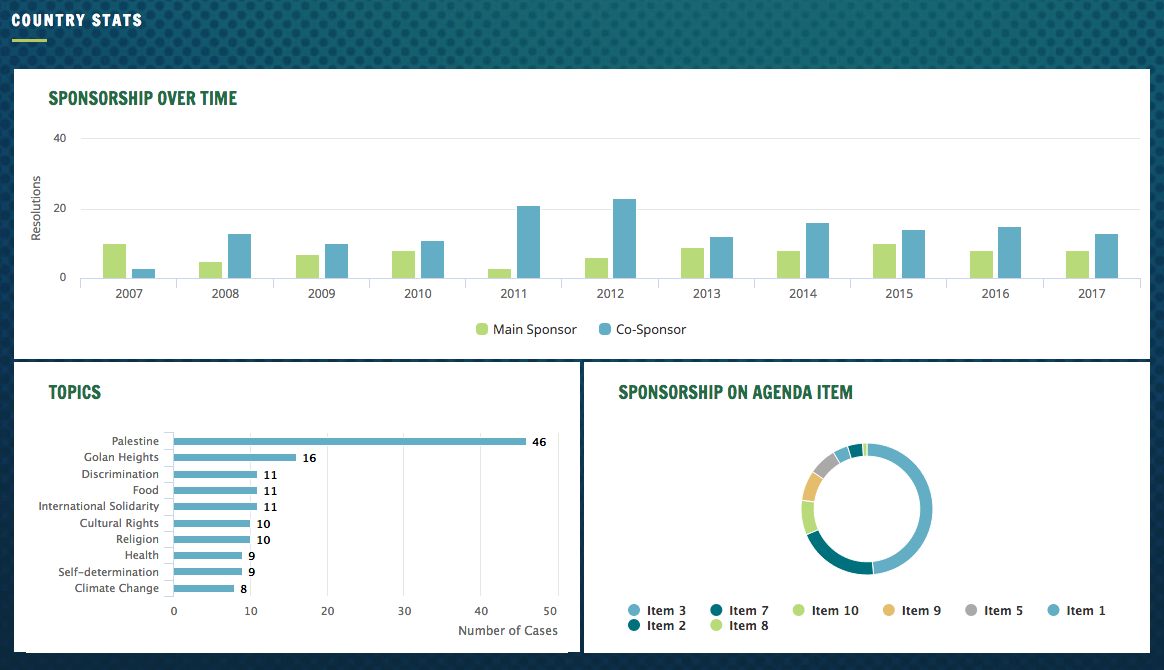We’re proud to announce the launch RADAR with our partner, FORUM-ASIA. RADAR, which stands for Review of Asian Diplomacy and Rights, is a platform for analysis and a tool for research on Asian states’ performance at the UN Human Rights Council.
The UN Human Rights Council plays an important role in the protection of human rights. Through its resolutions and procedures (such as the Universal Periodic Review), the Council can raise awareness of violations and review states human rights records. By expanding human rights jurisprudence and developing standards, the Council also helps to expand the implementation of human rights in countries undergoing political or economic shifts. The Council provides an important international platform for civil society and for human rights defenders. However, civil society organizations, especially from the global south, face challenges to fully participate in the platform.
Together with our partner, Ketse, we have set out to solve the challenge of organization’s ability to access these documents with a project called RightDocs. With RightDocs, we’ve been making the Council’s openly available documents more easily accessible so that you can search, sort and analyse without a lot of time and effort.
Building on this approach, we set out to develop a version of this database more focused on the Asia region. Together with FORUM-ASIA, we have developed RADAR, an online database that organizes information on the Human Rights Councils’ activities of 19 Asian countries. The information includes: membership time periods, latest news, number of resolutions sponsored (broken down into main sponsorship and co-sponsorship), number of cases broken down by topic, sponsorship on different agenda items, list of resolutions they sponsored, statistics on their communication records, and list of recent communications. Furthermore, RADAR hosts a platform where people can share blog posts relating to 19 Asian countries and human rights topics.
Through our work on RADAR, we were able to add the Special Procedures communications to the main RightDocs database. These communications are direct interventions on allegations of human rights violations brought to the attention of the mandate holders, with states being asked to respond. Thanks to RADAR, we see that at least in the Asian region, too often there is not even a response, and if there is one, it takes too long. Previously, this information was only available in these documents and annual reports compiled by the OHCHR.
Currently, the platform has information on the 19 countries in which FORUM-ASIA has its members, and it focuses on their three thematic priorities: freedom of assembly and association, freedom of expression and human rights defenders. We invite you to explore the platform for yourself and learn how Asian countries vote on these human rights resolutions!
If you have a similar use case for a database of states’ resolutions at the Human Rights Council, please reach out to us! Through the work on RADAR we were also able to create an API to make the RightDocs data more easily accessible in JSON format. We will be sharing information on this soon and hope this will allow many more to work with this important dataset.
For more information on how human rights organizations can strategically engage the UN Human Rights Council, take a look at the summary of this New Tactics conversation on ‘Engaging the United Nations Human Rights Council’.
